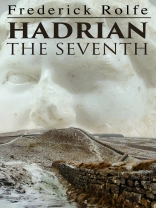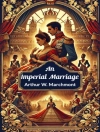In 2014, The Guardian placed ‘Hadrian the Seventh’ on the list of the 100 best novels written in English. A historical novel by the English novelist Frederick Rolfe, it is based on his essay the Papal Conclave to elect the successor to Pope Leo XIII. It tells about an English priest that got invited by two Catholic priests to Rome, where the Conclave was gathered to elect the new Pope. Suddenly, the Conclave gives this position to him, and since the only previous English Pope was Adrian (or Hadrian) IV, he takes the name Hadrian VII. He is an unconventional pope – a chain smoker wishing to reform the church against fierce opposition from the established Roman Catholic hierarchy. Will he manage to stand the plots and intrigues, and is his reform needed? Those are the matters for readers to discover.
Circa l’autore
Frederick William Rolfe (1860 – 1913) was an eccentric English writer, artist, and photographer who dreamed about a post of a priest. After unsuccessful attempts to get a cleric education, he entered the circle of Duchess Sforza Cesarini, who, as he claimed, adopted him as a grandson and gave him the use of the title of ‘Baron Corvo, ‘ which he used as a pseudonym. He authored several novels, which didn’t let him sustain a wealthy living despite the positive reviews. That is why, like many freelance writers of the era, he relied on benefactors for support. He was one of the artists whose fame brings fruit posthumously. It was the talented biographical work The Quest for Corvo by A. J. A. Symons that brought Rolfe’s life and work to the attention of a wider public. After this book, Rolfe’s works like Stories Toto Told Me, Hadrian the Seventh, Nicholas Crabbe, The Desire and Pursuit of the Whole became widely known and internationally famous.












